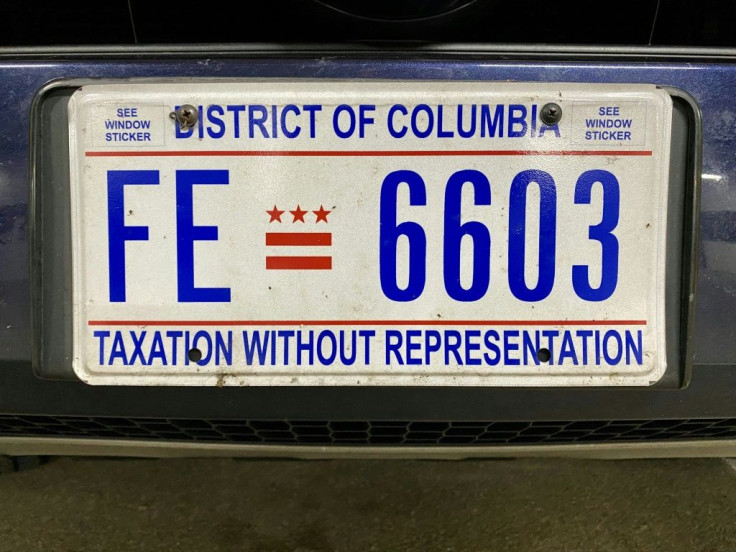Should Washington, DC, Be A State? House Says Yes, Trump, Republicans Say No

KEY POINTS
- The population of the District of Columbia is greater than that of Wyoming and Vermont but residents have no voting rights in the Congress
- Trump says Republicans would be "very stupid" to allow the largely Democratic district to become a state
- A prominent civil rights group said the issue is racial since the district's population is 46% Black
The U.S. House voted for the first time Friday to make the District of Columbia the 51st state, but the measure faced death in the Senate. The House vote was 232-180, mainly along partisan lines, to create the Douglass Commonwealth, honoring Frederick Douglass.
President Trump has ridiculed the idea of statehood for the district’s more than 700,000 residents – more than the states of Vermont and Wyoming. Trump vowed last month he would never allow the district to become a state, telling the New York Post: “You mean District of Columbia, a state? Why? So, we can have two more Democratic — Democrat senators and five more congressmen? No thank you. That’ll never happen.”
Presumptive Democratic presidential nominee Joe Biden disagreed with the president.
DC should be a state. Pass it on. https://t.co/xUJ1sud76f
— Joe Biden (@JoeBiden) June 25, 2020
Mayor Muriel Bowser hailed the vote, saying, “I was born without representation, but I swear – I will not die without representation.”
Statehood likely will have to wait for Democrats to gain control of both houses of Congress and the White House.
Republican lawmakers largely oppose statehood for the district. Representation would fundamentally change the makeup of Congress, giving it a possible five seats in the 435-member House and two in the 100-member Senate. Trump said Republicans would be “very stupid” to allow that to happen.
D.C. residents pay federal taxes but do not have any voting power in Congress. The district currently is represented by one non-voting member, Rep. Eleanor Holmes Norton, a Democrat who was first elected in 1991.
“It is long past tine to apply the nation’s oldest slogan, ‘No taxation without representation,’ and the principle of consent of the governed to District of Columbia,” she said ahead of the vote, adding that Congress has a “moral obligation” to grant statehood.
The bill would reduce the size of the federal district to 2 square miles. The area’s other 66 square miles would constitute the state.
The Leadership Conference on Civil and Human Rights, the nation’s oldest and largest civil rights coalition, said the issue of statehood has racial overtones since nearly half of the district’s population is Black.
“Race underlies every argument against D.C. statehood,” Rep. Maxine Waters, D-Calif., said ahead of the vote.
“More than 46% of its 700K residents are Black. Make no mistake: Race underlies every argument against #DCStatehood. And denying its citizens equal participation and representation is a racial, democratic, and economic injustice we cannot tolerate.”
— The Leadership Conference (@civilrightsorg) June 26, 2020
Listen to @RepMaxineWaters: pic.twitter.com/kwFIR3uRjE
“This is about power. Make no mistake about it,″ Rep. Chip Roy, R-Texas, countered during the debate.
Sen. Tom Cotton, R-S.C., panned the bill on the Senate floor.
“Would you trust Mayor Bowser to keep Washington safe if she were given the powers of a governor? Would you trust [former Mayor] Marion Barry?” Cotton asked.
© Copyright IBTimes 2025. All rights reserved.






















